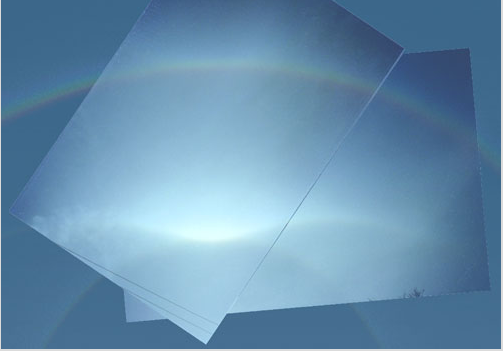Supralateral arc I
Supralateral Arc I: A Stunning Atmospheric Optics Phenomenon
Have you ever looked up at the sky and been mesmerized by the beauty of the atmospheric phenomena that can occur? One such captivating phenomenon is the supralateral arc, which adds a touch of magic to the heavens. In this article, we will explore the supralateral arc in more detail and uncover its fascinating characteristics.
Understanding the Supralateral Arc
The supralateral arc is a rare optical phenomenon that occurs when sunlight interacts with ice crystals in the atmosphere. It forms a stunning arc of light above the sun, appearing parallel to the horizon. This ethereal arc is known for its vibrant colors and unique shape, making it a sight to behold for sky enthusiasts and photographers alike.
Formation and Conditions
To witness a supralateral arc, specific conditions must be met. The arc is formed when sunlight passes through horizontally aligned ice crystals in the atmosphere. These crystals act as prisms, bending and refracting light to create the arc. The supralateral arc is typically seen alongside other atmospheric optics phenomena, such as the upper tangent arc or the 22° halo.
Distinguishing the Supralateral Arc from Other Halos
Differentiating the supralateral arc from other halos can be challenging, as they share similar characteristics. However, there are key features to look out for:
- Position: The supralateral arc appears above the sun, parallel to the horizon.
- Intensity: The supralateral arc is often more vivid and intense than other halos, making it stand out in the sky.
- Halo Comparison: Comparing the intensity of the 22° halo with other halos can help identify the presence of a supralateral arc.
Capturing the Supralateral Arc
Photographing the supralateral arc can be a rewarding experience for photographers who wish to document this captivating phenomenon. To capture its true beauty, it is recommended to use a wide-angle lens and a polarizing filter to enhance the colors and minimize glare. Patience and persistence are key, as the supralateral arc is relatively rare and requires specific atmospheric conditions to occur.
Atmospheric Optics Research and Simulations
Scientists and researchers have delved into the world of atmospheric optics to understand the mechanisms behind the formation of the supralateral arc. Through research and computer simulations, they aim to unravel the complexities of ice crystal alignment and light refraction that give rise to this enchanting phenomenon.
Conclusion
The supralateral arc is a captivating atmospheric optics phenomenon that adds a touch of magic to the sky. Its vibrant colors and unique shape make it a sought-after sight for sky enthusiasts and photographers. By understanding its formation and distinguishing features, we can appreciate the beauty of this rare phenomenon when we are fortunate enough to witness it. So, next time you find yourself gazing at the sky, keep an eye out for the mesmerizing supralateral arc.
Supralateral
Part of the complex display over Northern & Central England 9th February 2001. Photographed at Sheffield by Malcolm Garland ~1300 UT when the sun was 22� high. The horizontal column crystals which formed the supralateral arc also produced an intense upper tangent arc. The weakness of the 22� halo compared with the upper tangent arc indicates that the outer halo was a supralateral arc rather than a 46� halo. The background is a HaloSim3 simulation. Images �Malcolm Garland, reproduced with permission.
Note: this article has been automatically converted from the old site and may not appear as intended. You can find the original article here.
Reference Atmospheric Optics
If you use any of the definitions, information, or data presented on Atmospheric Optics, please copy the link or reference below to properly credit us as the reference source. Thank you!
-
<a href="https://atoptics.co.uk/blog/supralateral-arc-i/">Supralateral arc I</a>
-
"Supralateral arc I". Atmospheric Optics. Accessed on November 15, 2024. https://atoptics.co.uk/blog/supralateral-arc-i/.
-
"Supralateral arc I". Atmospheric Optics, https://atoptics.co.uk/blog/supralateral-arc-i/. Accessed 15 November, 2024
-
Supralateral arc I. Atmospheric Optics. Retrieved from https://atoptics.co.uk/blog/supralateral-arc-i/.